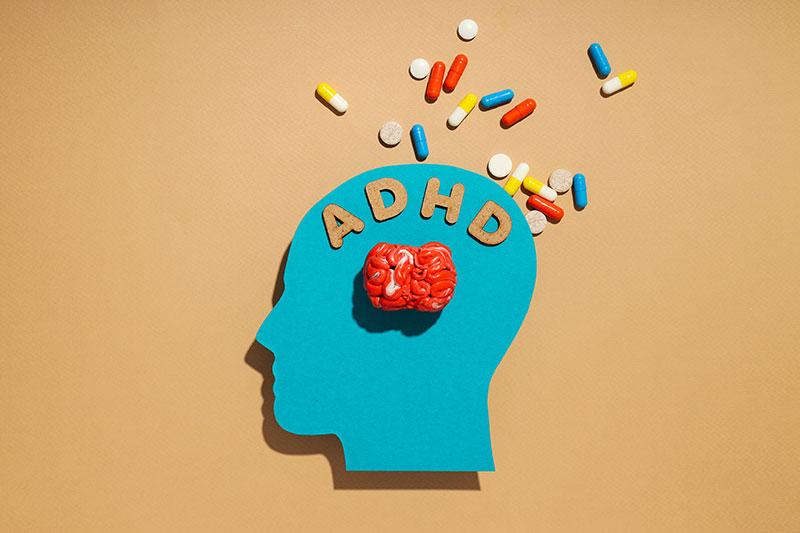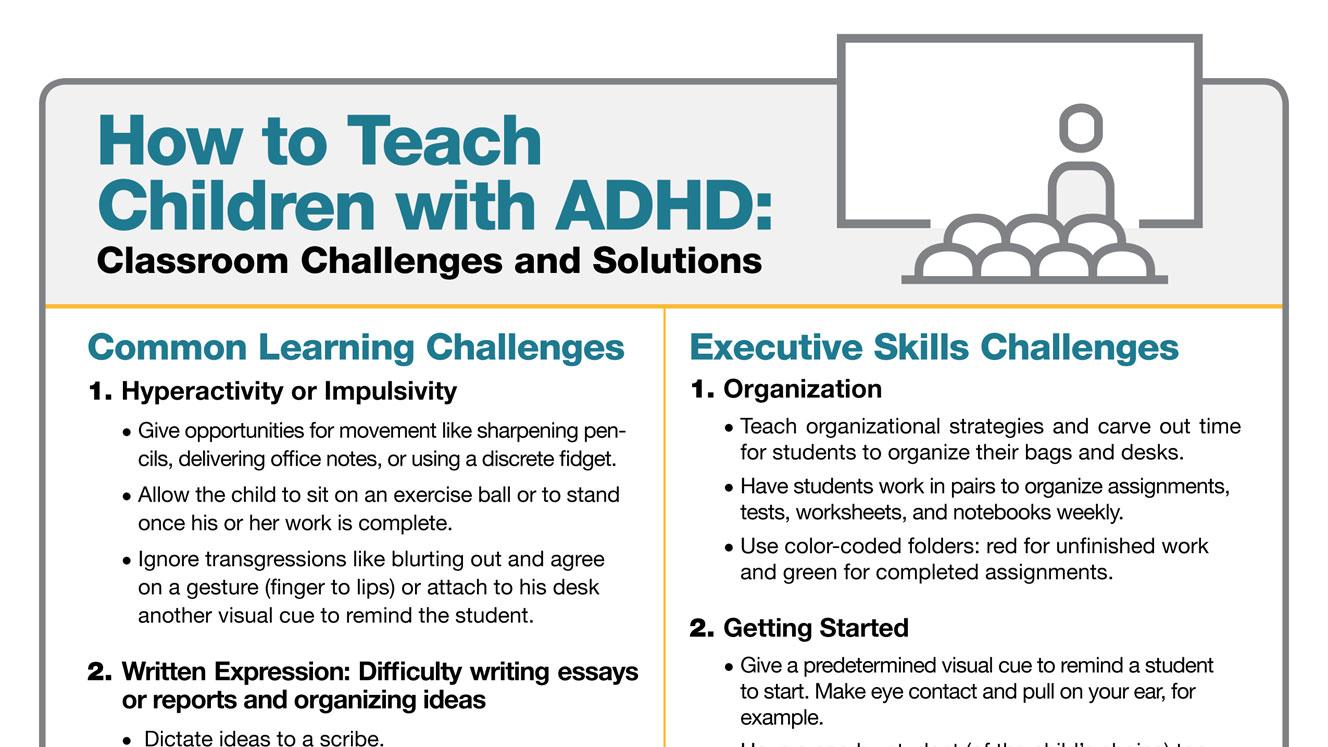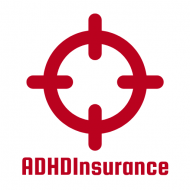Trump’s Health Appointments: A New Era for ADHD Care? In the ever-evolving landscape of American healthcare, the appointment of new leaders can herald shifts not just in policy, but in the very philosophies that underpin the treatment of diverse conditions. As the nation watches the latest changes in the Trump administration’s health appointments unfold, there is a palpable sense of curiosity surrounding a particularly pressing issue: Attention Deficit Hyperactivity Disorder (ADHD). With millions of children and adults navigating life with this condition, the implications of these appointments could resonate far beyond the corridors of Washington, D.C. This article delves into the potential impact of these new figures on ADHD care, exploring whether we are on the brink of a more tailored and accessible approach to this prevalent neurodevelopmental disorder, or if existing challenges will simply persist under a new regime. Join us as we take a closer look at the intersection of politics and healthcare, and what it could mean for those seeking effective solutions for ADHD in a changing world.
Table of Contents
- Transforming ADHD Treatment Through Innovative Leadership
- Understanding the Implications of New Health Appointments on ADHD Policies
- Strategies for Improved Access and Resources in ADHD Care
- Building a Collaborative Framework for ADHD Support Services
- Q&A
- In Retrospect

Transforming ADHD Treatment Through Innovative Leadership
In an era where traditional approaches to ADHD treatment have often fallen short, the emergence of innovative leadership is redefining the landscape. By prioritizing holistic care models, new appointees under Trump’s administration have the potential to address ADHD not merely as a neurological condition but as a multifaceted challenge tied to emotional, social, and educational dimensions. This shift emphasizes the importance of collaboration between various stakeholders, including healthcare providers, educators, and families, to create comprehensive strategies tailored to the unique needs of each child.
The proposed methodology encompasses a range of evidence-based interventions designed to foster resilience and adaptive skills among individuals with ADHD. Some key components of this approach include:
- Integrated Care Teams: Multi-disciplinary groups that combine medical, psychological, and educational expertise.
- Technology Utilization: Mobile apps and telehealth services that allow for real-time monitoring and support.
- Community Engagement: Programs designed to raise awareness and reduce stigma associated with ADHD.
- Research Investment: Funding for studies that aim to explore innovative therapies and interventions.
| Key Innovations | Potential Impact |
|---|---|
| Teletherapy Services | Improved access to mental health professionals. |
| Customized Learning Plans | Enhanced academic performance tailored to individual needs. |
| Parental Support Programs | Empowered families with strategies and resources. |

Understanding the Implications of New Health Appointments on ADHD Policies
The recent health appointments made under the Trump administration signal potential shifts in the policy landscape surrounding ADHD care. With a greater emphasis on deregulation and a focus on personal responsibility, these appointments may foster a more individualized approach to treatment. This could lead to policies that prioritize access to diverse therapeutic options, including behavioral therapies and innovative digital health interventions. However, concerns about comprehensive support for vulnerable populations also loom large, raising questions about the balance between accessibility and quality of care.
As the landscape evolves, stakeholders in ADHD policy must navigate various implications stemming from these appointments. Key areas to watch include:
- Funding Initiatives: Potential changes in federal funding for ADHD research and support services.
- Insurance Coverage: Adjustments to insurance policies regarding ADHD medications and therapies.
- Awareness Campaigns: Emphasis on increasing awareness about ADHD among educators and primary care providers.
Table 1 below outlines the potential changes in ADHD policy focus:
| Policy Area | Potential Impact | Stakeholders Affected |
|---|---|---|
| Diagnosis Criteria | Possible revisions leading to broader diagnostic practices | Clinicians, Patients |
| Treatment Accessibility | Increased access to alternative therapies and medications | Families, Providers |
| Educational Resources | Enhanced training materials for teachers on ADHD | School Districts, Students |
As these conversations unfold, it’s crucial for advocates and practitioners to remain vigilant, adapting to changes while ensuring that the core needs of individuals with ADHD are met adequately and compassionately.
Strategies for Improved Access and Resources in ADHD Care
Advocating for enhanced ADHD care means not only acknowledging the complexities of the disorder but also addressing the systemic hurdles that families face. One promising approach involves increasing the availability of specialized clinics that focus on ADHD across various communities. By establishing multidisciplinary teams, these clinics can offer comprehensive services, ranging from psychological evaluation to behavioral therapy, ensuring that patients receive holistic care. Moreover, telemedicine solutions can bridge the access gap, allowing individuals in rural or underserved areas to consult with experts without the burden of travel.
Incentivizing public-private partnerships could also play a significant role in expanding ADHD care resources. Collaborative efforts can lead to the development of educational programs aimed at parents, educators, and healthcare providers, fostering a deeper understanding of ADHD and reducing stigma. To visualize some of the innovative strategies, consider the following table:
| Strategy | Description |
|---|---|
| Resource Centers | Establish centers focused on providing information and support for ADHD. |
| Workshops | Conduct workshops for parents and teachers to improve awareness and understanding. |
| Funding Research | Invest in studies exploring new treatments and coping strategies for ADHD. |
By implementing these strategies, stakeholders can create a supportive ecosystem that ensures both access to care and the availability of rich resources aimed at improving the quality of life for those with ADHD.
Building a Collaborative Framework for ADHD Support Services
Establishing a robust network of support for individuals with ADHD requires a multi-faceted approach that incorporates various stakeholders. This means fostering collaboration among parents, educators, healthcare providers, and community organizations to create a cohesive support ecosystem. By prioritizing open communication and shared objectives, we can ensure that individuals with ADHD receive comprehensive, personalized care and resources. Key strategies include:
- Regular Training Sessions: Educational workshops for teachers and professionals to better understand ADHD and its impacts.
- Parent Support Groups: Facilitating spaces for parents to share experiences, resources, and coping strategies.
- Integration of Services: Coordinating between schools, clinics, and local organizations for streamlined access to services.
To bolster these efforts, establishing clear metrics for evaluating the effectiveness of ADHD support services is essential. A collaborative framework can be incentivized by integrating data-driven assessments that track progress and outcomes. This may include creating an easy-to-use dashboard for stakeholders to monitor key indicators of success, such as:
| Indicator | Measurement |
|---|---|
| School Engagement | Attendance rates and participation in activities |
| Therapeutic Interventions | Frequency and type of support received |
| Family Satisfaction | Surveys assessing satisfaction with services |
By promoting transparency and accountability, we can build a support framework that evolves as the needs of individuals with ADHD change, ultimately driving innovation and enhancing care quality.
Q&A
Q&A: Trump’s Health Appointments – A New Era for ADHD Care?
Q1: What are the recent developments in Trump’s health appointments regarding ADHD care?
A1: Recently, several key health appointments made by Trump have sparked discussions around ADHD care. The appointments of individuals with backgrounds in child psychology, education, and neurodevelopmental disorders suggest a potential shift towards more comprehensive ADHD diagnosis and treatment approaches. This could signify a new commitment to addressing the nuances of ADHD care at a national level.
Q2: How are these appointments expected to impact ADHD treatment accessibility?
A2: These appointments aim to streamline ADHD treatment by possibly enhancing the availability of resources and support for affected individuals. With a focus on evidence-based practices and integrative care, the administration may work to break down barriers that hinder access to diagnosis and treatment, particularly in underserved communities.
Q3: What are the potential implications for ADHD research under Trump’s health team?
A3: The new health team could prioritize funding for ADHD research, focusing on understanding the disorder’s biological underpinnings and improving therapeutic methods. However, the political landscape could influence research agendas; it remains to be seen whether a more open approach to exploring diverse treatment modalities, such as behavioral therapies alongside medication, will emerge.
Q4: What challenges might this new approach face in the current political environment?
A4: Despite the promise of improved ADHD care, challenges persist. Bipartisan support is crucial for effective healthcare policies; however, differing views on mental health funding and treatment methods could pose obstacles. Additionally, mental health stigma and varying levels of awareness around ADHD could complicate implementation efforts.
Q5: How do experts view the potential for change in ADHD care during this administration?
A5: Experts have expressed cautious optimism about the new appointments. Many believe that a dedicated focus on ADHD could lead to better-informed policies and practices, while others emphasize the need for continued advocacy and dialogue to ensure that the interests of individuals with ADHD are prioritized, irrespective of the political climate.
Q6: What should families and caregivers be aware of as these changes unfold?
A6: Families and caregivers should stay informed about policy developments and actively participate in advocacy efforts. Engaging with local mental health organizations and remaining vigilant about the quality of ADHD resources available will be crucial for navigating this evolving landscape. Open communication with healthcare providers can also help to better understand the impacts of these changes on individual care plans.
Q7: In what ways can communities contribute to improving ADHD care during this transition?
A7: Communities can play a vital role by fostering awareness and understanding of ADHD, creating support networks, and advocating for policy changes at local and state levels. Initiatives that promote mental wellness in schools, workplaces, and community centers can provide essential support to individuals with ADHD and their families, making a collective impact during this pivotal time.
In Retrospect
the evolving landscape of ADHD care under Trump’s health appointments marks a significant chapter in the ongoing dialogue about mental health and wellness in America. With a focus on innovative treatment strategies, increased funding, and a commitment to reducing stigma, there is potential for positive change that could resonate across diverse populations. As stakeholders from various sectors come together to navigate these developments, it is crucial to remain attentive to both the advances and challenges that lie ahead. The road to enhanced ADHD care may still be fraught with complexities, but the momentum generated by this new era could ultimately pave the way for more comprehensive support for individuals and families affected by ADHD. As we keep a watchful eye on these changes, we invite readers to engage in this critical conversation about the future of mental health care. Your voice matters, and together, we can champion a brighter, more inclusive path forward.
Dr. Jonathon Preston is a respected mental health specialist dedicated to helping individuals overcome challenges. With advanced training in psychology and decades of experience in the mental health field.
